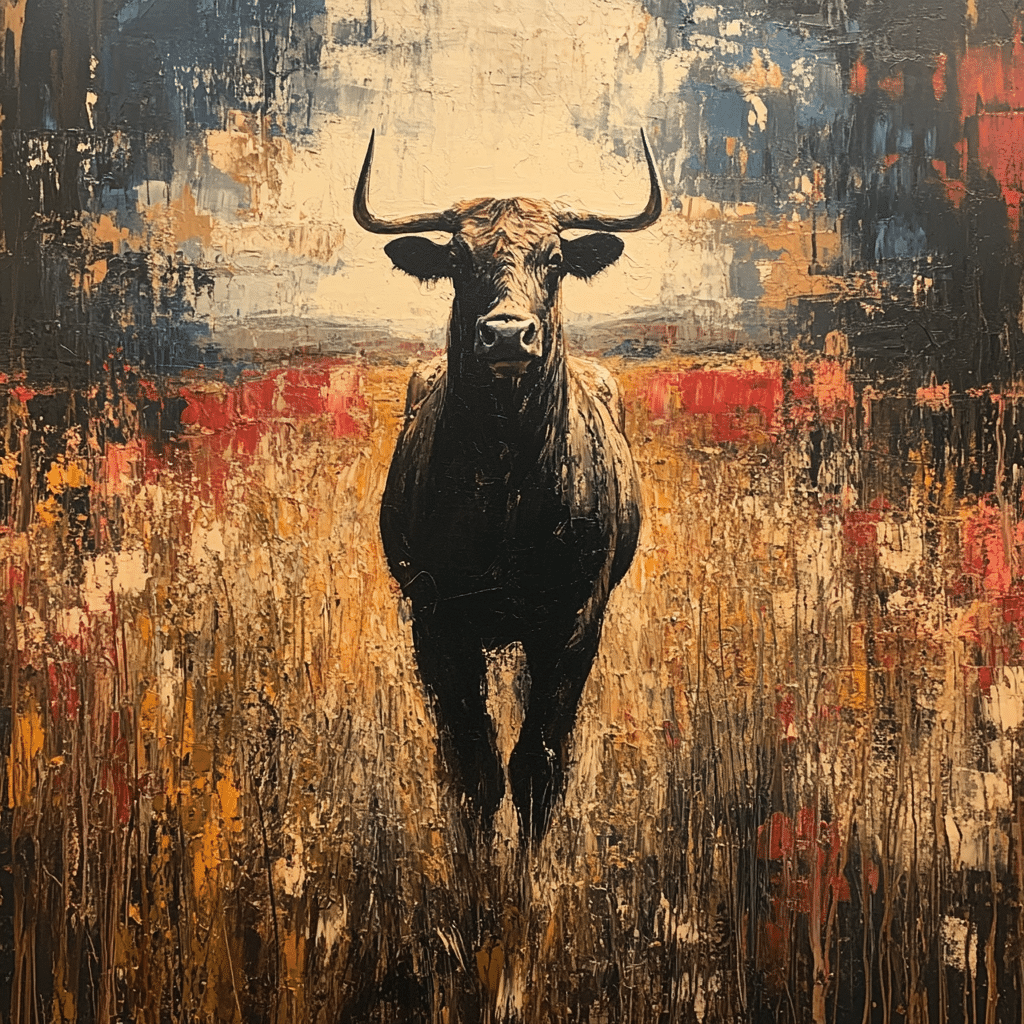In a time when many folks are becoming more conscious about what they eat, Wild Pastures has emerged as a game changer in the meat supply chain. This innovative company focuses on delivering high-quality, sustainable meat directly to consumers while emphasizing animal welfare, environmental stewardship, and transparency in sourcing. Wild Pastures has tapped into the cravings of a modern audience looking for more than just food—they want a connection to their meals and assurance about their impact on the planet.
The Rise of Wild Pastures in Sustainable Meat Supply
The call for sustainable eating is louder than ever. Consumers are no longer merely looking for the taste on their plate; they want to know the story behind their food. Wild Pastures embodies this shift, providing a straightforward option that connects people with responsible farming practices. By sourcing meat from regenerative farms, Wild Pastures ensures that the meat on your plate reflects a commitment to ecologically sound practices and a healthier planet.
Regenerative agriculture is at the forefront of this movement. This practice focuses on rebuilding soil health and promoting biodiversity by using techniques that mimic nature. Wild Pastures champions these practices, advocating for methods that don’t just sustain but also restore the earth’s resources. The direct relationship they cultivate with farmers means that every bite can tell a story of care.
Key to their success is their emphasis on transparency. When you order from Wild Pastures, you’re not just purchasing meat—you’re diving into a deeper understanding of where your food comes from. Each delivery provides details on the farm of origin, farming methods, and the animals’ health, giving consumers the piece of mind they’re looking for. This approach not only meets the modern consumer’s demands but builds a community of conscious eaters.

5 Reasons Why Wild Pastures is Changing the Meat Industry
Wild Pastures connects consumers directly with farms, allowing a bypass of the traditional supply chain. This unique model reduces transportation emissions, supporting eco-friendly practices. For example, partnering with White Oak Pastures in Georgia gives consumers access to grass-fed beef without the markup from middlemen. It’s a win-win situation for farmers and consumers alike.
At the heart of Wild Pastures is a commitment to sustainable ranching. They’re heavily influenced by practices from organizations like the Savory Institute. This approach ensures that grazing livestock contributes positively to the ecosystem, improving soil health and sequestering carbon. Carrots and cucumbers can’t fix climate change, but responsible grazing can make a significant difference.
The sense of connection that Wild Pastures fosters resonates deeply with consumers. Many aren’t comfortable eating meat sourced from unknown suppliers. Each order includes information about the animal’s journey, allowing customers to feel informed and empowered about their choices. This transparency builds trust, a valuable currency in today’s marketplace.
Wild Pastures doesn’t just offer beef; their selection includes pasture-raised pork, chicken, and even wild-caught seafood. With collaborations from brands like Wild Alaskan Company and Porter Road, they ensure a varied menu that caters to all protein lovers. This broad spectrum gives consumers the chance to explore sustainable choices while still enjoying their favorite meals.
With busy schedules, convenience plays a big role in food choices. Wild Pastures’ subscription model allows for regular deliveries based on your preferences. You select what you want, which means you always have fresh meat on hand. This service minimizes food waste, an ongoing concern in our fast-paced lifestyles.
The Impact of Sustainable Meat on Local Economies
When you support Wild Pastures, you’re not just eating—you’re making an investment in local economies. The company promotes small, regenerative farms that keep money circulating within communities. This practice strengthens local financial systems and encourages sustainable land management techniques. As these farms thrive, so does the surrounding environment, offering a dual benefit to our society.
Moreover, investing in local farmers means a more resilient food system. These farms adapt better to challenges such as climate change and market fluctuations compared to large-scale operations. Wild Pastures illustrates how local sourcing strengthens economies and, in turn, offers better quality products. Every purchase contributes to a network of sustainable practices that benefit everyone involved.
Ultimately, supporting sustainable options like Wild Pastures isn’t just a choice; it’s a movement toward economic and ecological stability. By making these choices, consumers help cultivate a future where responsible farming practices reclaim their rightful place in our food systems.

Consumer Trends in Sustainable Meat Choices
Recent data from the Food Marketing Institute reveals that over 70% of respondents are increasingly interested in ethically sourced meat. This statistic underscores a significant shift in consumer preferences. As consumers become more aware of their food’s impact on the environment, they look for brands like Wild Pastures that genuinely prioritize ethical claims.
But what does ‘sustainable’ really mean? Many consumers remain in the dark about the various aspects of sustainability. By articulating their practices clearly, companies like Wild Pastures can educate their audience. Highlighting success stories, sharing farming practices, and detailing environmental impacts empowers consumers to make informed decisions.
As the demand for ethical sourcing grows, so do questions about meat consumption’s future. What are the actual benefits of these sustainable choices? Integrating more information into marketing strategies can enlighten consumers and guide them towards making responsible choices that benefit their health and the planet.
Challenges Ahead for Wild Pastures and the Sustainable Meat Movement
Despite its successes, Wild Pastures faces challenges. Competition from larger meat brands threatens its market share. As demand rises, maintaining sourcing quality while scaling operations is a major concern. It takes constant vigilance to ensure that the essence of their mission doesn’t get lost in growth.
Price volatility also poses a risk. When economic pressures mount, consumers might gravitate toward cheaper options, which could compromise their commitment to sustainability. The key for Wild Pastures will be to balance affordability with ethical practices—an ongoing challenge in today’s economy.
Finally, expanding consumer awareness about the importance of choosing sustainable options may be difficult. Companies must find innovative ways to educate customers about the benefits of responsible consumption. This might involve partnerships with local communities or educational campaigns highlighting the tangible impacts of their choices.
Innovations in Sustainable Meat Delivery
As the logistics of food delivery continue to evolve, companies like Wild Pastures have embraced technology to enhance their operations. Cold-chain logistics ensure that products remain fresh from farm to table, which is critical for maintaining quality. Innovations in tracking and distribution allow for greater efficiency and transparency.
Moreover, Wild Pastures explores carbon-neutral shipping methods, aligning with its commitment to environmental sustainability. By utilizing electric vehicles, optimized routes, and sustainable packaging practices, they minimize their carbon footprint. This forward-thinking approach not only addresses logistical challenges but also appeals to eco-conscious consumers.
As these innovations unfold, Wild Pastures remains at the forefront of sustainable meat delivery. Their adaptability and focus on technology allow them to engage with customers in new ways while maintaining their ethical commitments.
The Future of Meat Consumption
Looking ahead, it’s clear that Wild Pastures embodies a pivotal shift towards ethical consumption. The conversation around food choices continues to evolve, with an increasing number of consumers recognizing the role their decisions play in shaping environmental impacts. Wild Pastures offers a bridge for meat lovers who seek alternatives that align with their values.
By prioritizing responsible sourcing and highlighting farm-to-table practices, the company instigates a larger movement toward sustainable food systems. This narrative doesn’t just appeal to the eco-aware; it beckons all consumers to reconsider their meat consumption. After all, taking care of our planet is everyone’s responsibility.
Embracing a New Era of Conscious Eating
Wild Pastures illustrates the immense potential of sustainable meat delivery models to reshape dining experiences, bolster local economies, and contribute to the well-being of our environment. As more people vote with their wallets, companies in this sector must continuously innovate and inspire. The future of food isn’t just about what’s on our plates; it’s a collective journey toward conscious eating for the greater good.
In conclusion, Wild Pastures not only caters to meat enthusiasts but also champions a sustainable future, where every bite contributes to a thriving, healthy planet. Supporting this movement isn’t just a food choice; it’s a lifestyle shift toward a brighter future. Take the plunge—try Wild Pastures and join the growing community of conscious consumers making a difference, one meal at a time.
Discovering Wild Pastures: Fun Facts and Trivia
The Essence of Wild Pastures
Did you know that wild pastures aren’t just a clever name but signify a commitment to sustainability? Many of these farms focus on regenerative practices that benefit the environment. For instance, raising animals on pasture helps to restore soil health and sequester carbon dioxide, making the planet a little greener. Speaking of green initiatives, if you’re curious about boutique influencers, check out These three boutique brands that champion eco-friendly practices as well. The future is indeed looking bright for those of us who care about our ecological footprint!
Farm-to-Table Connections
Ever heard of the term “farm-to-table”? It reflects the journey of food from its source straight to your plate—no middlemen involved! Wild pastures embrace this concept wholeheartedly, connecting consumers directly with the farmers who raise their livestock. This not only supports local economies but also ensures that you know exactly where your food is coming from. The movement mirrors trends in other popular cultures, like the rise of streaming choices that showcase wholesome narratives, such as The Boy And The Heron, which emphasizes authentic connections. Speaking of connections, did anyone catch the buzz around Livvy Dunne’s boyfriend? It’s fascinating how personal relationships can spark public interest much like community-supported agriculture does!
Fun Facts to Chew On
Here’s a little trivia to chew on: did you know that pasture-raised animals typically have a better quality of life than those raised in traditional feedlots? Grazing freely means healthier animals and tastier meat on your plate. It’s a win-win! On a slightly different note, if you’re up for some quirky entertainment, you might come across unexpected topics like Roofied stories or the hilarious animated series Murder Drones v. Like these pop culture moments, the diversity of offerings in wild pastures means you’re bound to find something that satisfies your culinary cravings or sparks your curiosity! Plus, speaking of curiosity, it’s worth exploring how cultural figures, like Aaron Sorkin, craft narratives that resonate with so many, reminding us that storytelling seeps into every corner of our lives—even the food we eat!

Where does the meat from wild pastures come from?
The meat from Wild Pastures comes from American regenerative farms, ensuring it’s both high-quality and sustainably sourced. They focus on ethical practices that prioritize animal welfare.
Who is the owner of Wild Pastures?
Autumn Smith is the co-founder of Wild Pastures, along with Paleovalley and the Wild Pastures Burger Co. She’s passionate about promoting regenerative agriculture and better meat options.
Is wild pasture grass finished?
Yes, Wild Pastures offers 100% grass-fed and grass-finished beef, meaning the cattle are primarily fed on grass all their lives, aligning with natural diets and health standards.
Is wild pasture ethical?
Wild Pastures is known for its commitment to ethical practices, sourcing meat in a way that supports animal welfare and environmentally friendly farming approaches.
Does wild pasture use mRNA vaccines?
Wild Pastures does not use mRNA vaccines in their livestock, sticking with traditional and approved practices that comply with natural methods.
Does wild meat taste different?
Many folks say that wild meat often has a richer and more robust flavor compared to conventionally raised meat, thanks to the animals’ diet and lifestyle.
How long have wild pastures been in business?
Wild Pastures has been in business for some time now, gaining recognition for their approach to sustainable meat delivery over the last few years.
Does wild pasture come frozen?
Yes, Wild Pastures often ships meat frozen to ensure freshness upon delivery, which is a common practice in the meat industry.
What is regenerative meat?
Regenerative meat comes from animals raised in systems that restore soil health, improve ecosystems, and promote biodiversity while still producing food for consumption.
How fast do wild pastures ship?
Wild Pastures generally ships orders quickly, often within a few days, so customers can enjoy their fresh meat without a long wait.
Is pasture better than hay?
Pasture is indeed considered better than hay for animals, as it provides fresh, nutrient-rich grass that is healthier and more natural for grazing livestock.
Is Good Ranchers grass-fed?
Good Ranchers claims to offer grass-fed beef, focusing on sourcing from cattle that are raised on pasture rather than grain.
Is pasture-raised a gimmick?
Some folks believe pasture-raised is more than just a gimmick; it often leads to better animal welfare and healthier meat, but it’s essential to verify the practices behind that label.
What are the disadvantages of pasture?
Disadvantages of pasture can include higher costs for feed and potential issues with parasite management, as well as challenges in certain weather conditions affecting the quality of the grazing land.
Is good chop grass-fed?
Good Chop is touted as grass-fed, emphasizing its commitment to quality meat sourced from pasture-raised animals.
Where does backyard butchers get their meat?
Backyard butchers typically source their meat from local farms, but the exact origins can vary based on availability and local regulations.
Where does most grass fed beef come from?
Most grass-fed beef comes from the U.S., specifically from regions with vast pastureland like the Midwest and Southwest, where grazing is ideal for cattle.
Where does good ranchers source their meat from?
Good Ranchers sources its meat from a variety of American farms but emphasizes ethical and sustainable practices in its supply chain to ensure quality.
Where does Wild Fork get their beef from?
Wild Fork gets its beef from trusted ranches across the United States, focusing on quality and sustainability in the sourcing of their products.



